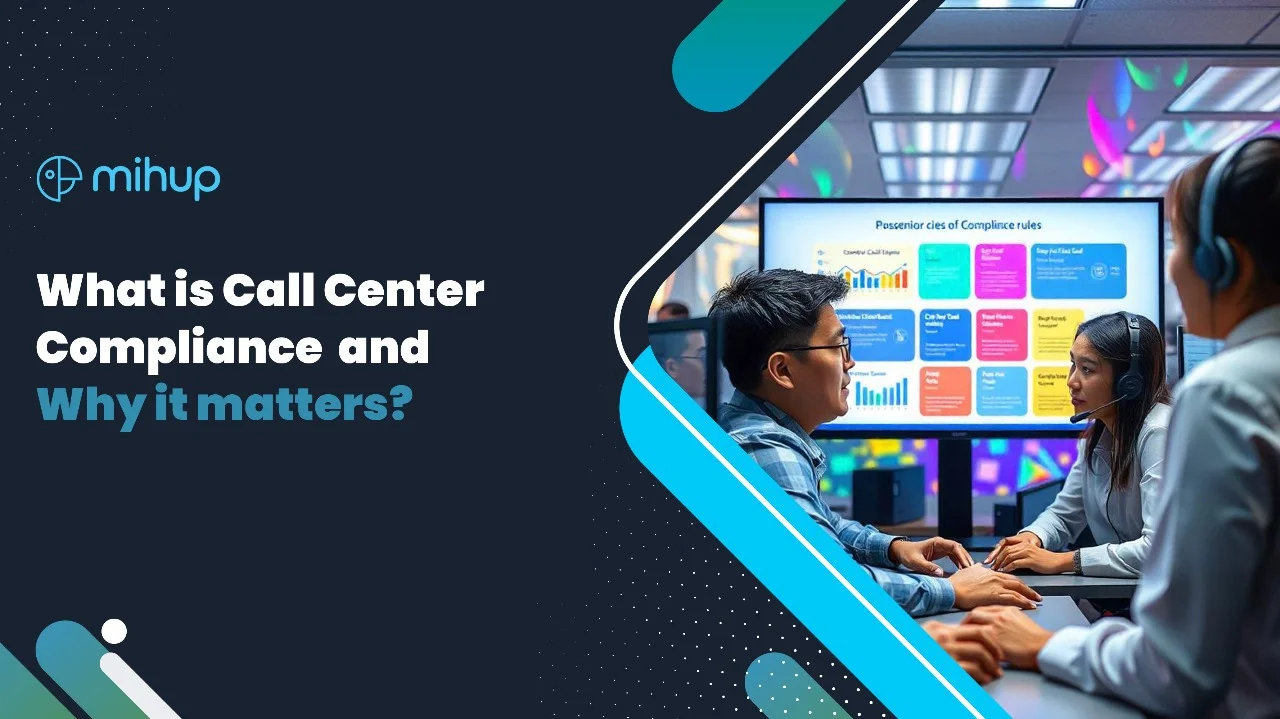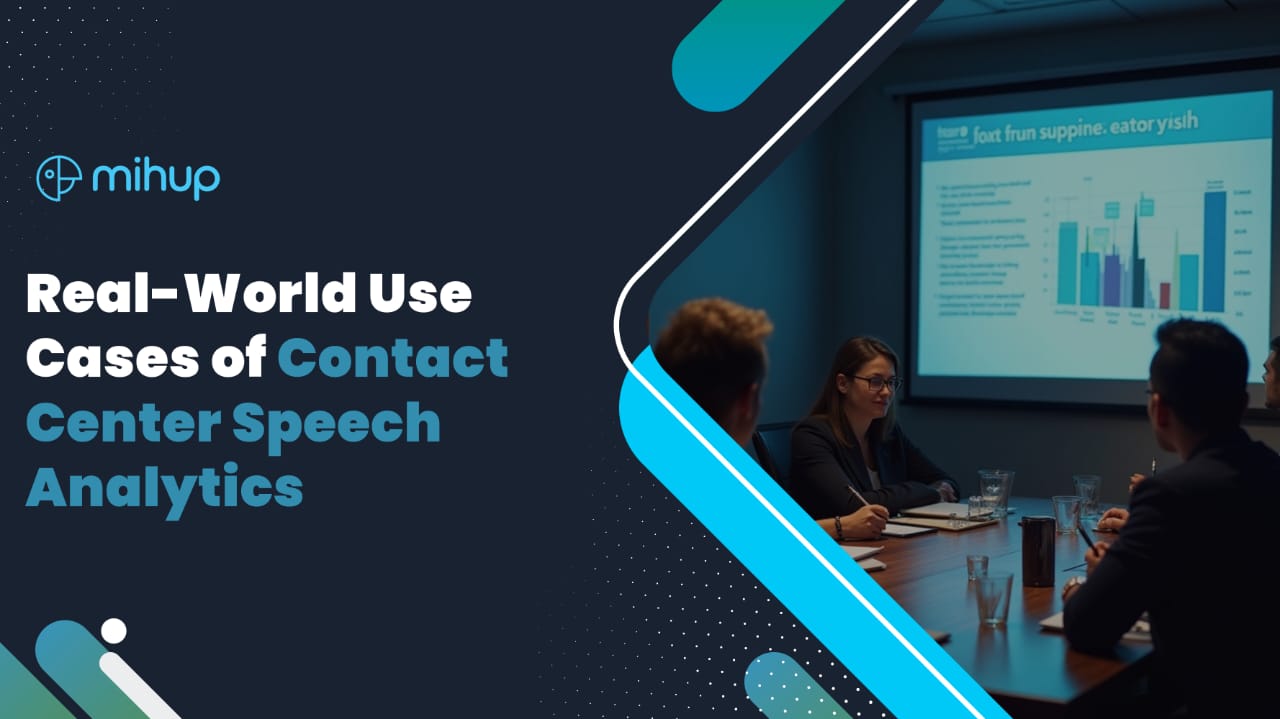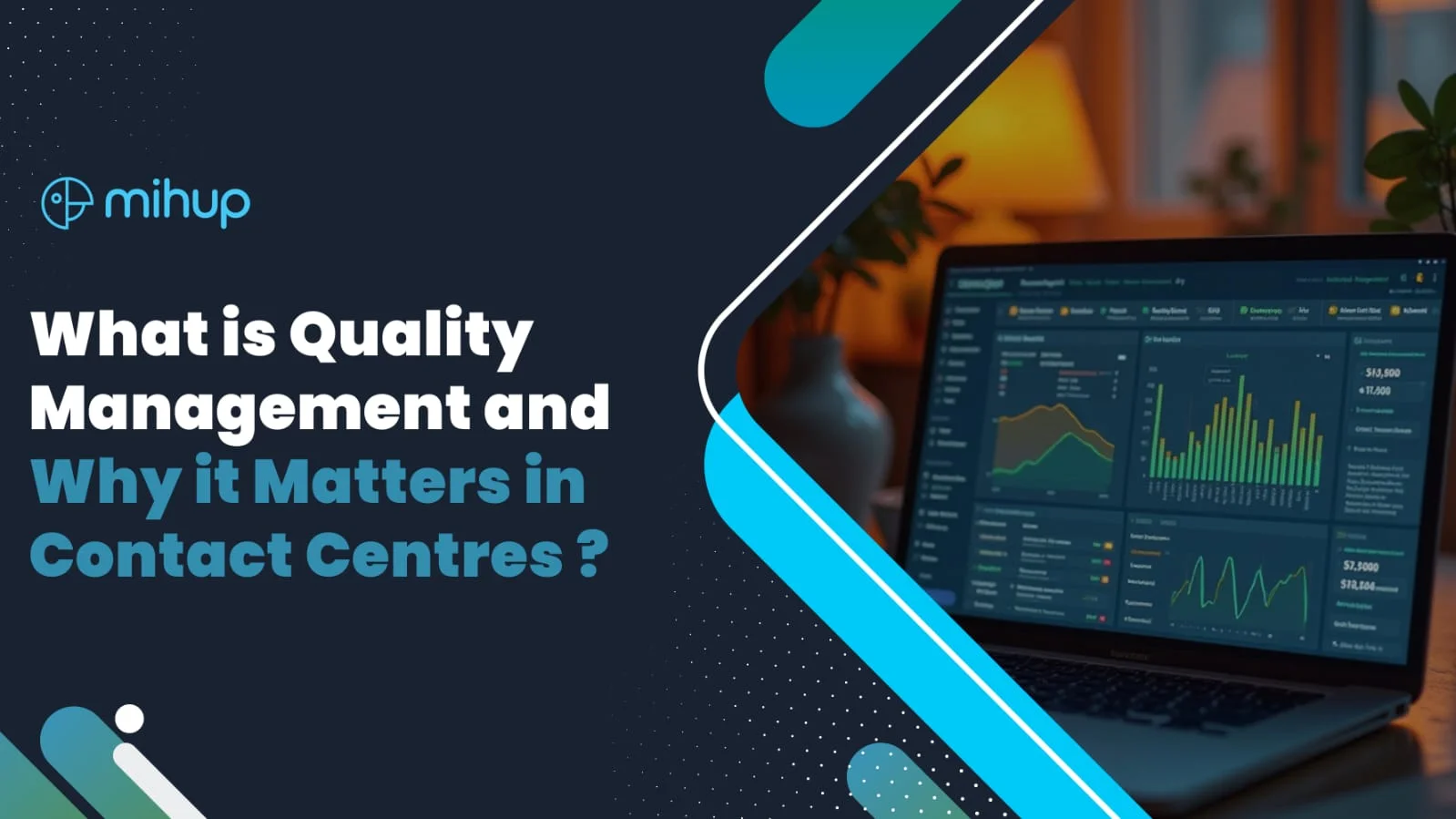Understanding Call Center Compliance
Call center compliance is vital to ensure the ethical handling of customers and the security of their information. It’s not just about regulations but also one of the necessary practices that could help businesses as well as customers by providing safety from unwanted losses in terms of heavy fines, legal issues, and damage to customer confidence.
Other than legal and financial implications, operational challenges include an increase in customer complaints, degradation in service quality, and inefficiencies that disrupt workflows. It can also damage the overall customer experience, which is the cornerstone of successful call center operations.
Call center compliance in today’s highly regulated and customer-focused environment is no longer optional; it has become an essential component of sustainable business practices. Adhering to compliance standards mitigates risks, fosters trust, and lays down a foundation for long-term success while delivering outstanding customer service.
What is Call Center Compliance?
Call center compliance refers to adhering to rules, laws, and guidelines in order to operate ethically and legally. Such regulations safeguard customer privacy, protect data, and ensure that communication is crystal clear. These regulations vary according to industry and location, so it can be tough to stay updated. However, ignoring such rules is not an option because it may lead to severe financial and reputational issues.
Major Compliance Regulations for Call Centers
Here are some of the most important regulations that call centers must follow. Each regulation covers different parts of call center operations and protects customers and their data.
-
Payment Card Industry Data Security Standard (PCI DSS)
PCI DSS is important for call centers dealing with payments. It safeguards sensitive payment information.
Prohibited Activities: Call centers cannot record or store CVV numbers, PINs, or full magnetic stripe data from payment cards.
Implementation: Most call centers employ software that automatically expunges sensitive information from calls.
By adhering to PCI DSS, call centers prevent data breaches and maintain trust with customers. -
General Data Protection Regulation (GDPR)
GDPR is a data protection law for organizations conducting operations within the European Union or handling data regarding EU citizens. It covers:
Consent: Call centers need explicit consent from customers before recording their calls.
Legitimacy: Organizations require a legitimate cause for collecting and using customer data.
Non-compliance with GDPR attracts huge fines, so call centers must handle data with care. -
Call Recording and Monitoring Consent
In most countries, laws demand that call centers obtain consent before recording or monitoring calls. These rules vary by location:
One-Party Consent: In some places, only one party (usually the agent) needs to know about the recording.
Two-Party Consent: Other jurisdictions require both the customer and the agent to consent to the recording.
Call centers should also allow customers the option to opt out of call recording to maintain transparency and adherence. -
Do Not Call Registry (DNC)
The DNC registry allows people to opt out of receiving telemarketing calls. Non-compliance can lead to:
Fines: Violating DNC regulations can result in huge fines.
Best Practices: Call centers should regularly update contact lists to remove DNC numbers. -
Telephone Consumer Protection Act (TCPA)
TCPA is a U.S. regulation that restricts telemarketing calls and the use of automated systems. Key points include:
Consent: Telemarketers need prior consent to use auto dialers for calls.
Prohibited Activities: Unsolicited calls and messages are strictly controlled. Following TCPA rules is essential to avoid lawsuits and ensure ethical practices. -
Health Insurance Portability and Accountability Act (HIPAA)
HIPAA regulates patient data in healthcare call centers. Important features include:
Data Security: Patient data must be encrypted and safeguarded in the call center.
Agent Training: Agents are constantly trained to ensure they are HIPAA compliant, thus avoiding unintended breaches.Example: A U.S. healthcare call center was severely penalized for failing to protect patient data. The data was not encrypted appropriately, violating HIPAA. This resulted in huge losses and a damaged reputation.
Consequences of Non-Compliance
Non-compliance in a call center leads to a cascade of severe consequences that impact all aspects of the business:
- Monetary Fines
Non-compliance regulatory fines can be hefty, sometimes reaching millions of dollars. These penalties can significantly affect profits, especially in smaller organizations. Apart from direct costs, the business would also incur increased operational costs due to corrective measures, such as the introduction of new compliance procedures or upgrades to security measures. Non-compliance can also lead to higher insurance premiums and the loss of financial partners. - Reputation Damage
Public exposure of non-compliance issues can quickly destroy a company’s reputation. News of regulatory violations spreads like wildfire through media and social platforms, causing long-term damage to the brand. Customers who care about security and ethics might lose trust and switch to other companies. Rebuilding a tarnished reputation is time-consuming and costly, often requiring intensive PR campaigns and additional customer retention efforts. - Operational Disruptions
Legal proceedings or investigations caused by non-compliance can severely interfere with daily activities. Regulatory audits, court actions, or shutdowns can siphon away resources and draw attention away from core activities. Operational inefficiencies may also arise from hasty compliance measures taken to mitigate immediate risks, disrupting established workflows and service delivery processes. - Customer Dissatisfaction
Non-compliance often leads to poor handling of customer communications. Breaches in data privacy, excessive call duration, or unresolved complaints will negatively affect customer experience. A rise in dissatisfaction and complaints is often a direct result. Customers who express discontent tend to criticize more publicly, causing more damage to the reputation, in addition to higher churn rates. - Employee Morale
A culture of non-compliance can breed dissatisfaction among employees, who will feel insecure about the integrity and stability of the organization. Employees working in a non-compliant environment will face higher stress levels due to poorly defined processes or fear of legal repercussions. This will lead to decreased engagement, reduced productivity, and higher turnover rates. Moreover, an organization that is perceived as unethical will struggle to attract and retain top talent.
Best Practices to Ensure Call Center Compliance
Ensuring compliance requires a proactive approach. By following these best practices, call centers can minimize risks and operate ethically.
-
Develop a Comprehensive Compliance Policy
A comprehensive compliance policy forms the bedrock of regulatory compliance. It should include:
Overview of Regulations: Summarize applicable laws.
Data Handling Procedures: Specify how to collect, store, and protect customer information.
Incident Response Plan: Outline steps to address data breaches and violations.
Consequences: Define penalties for non-compliant agents. -
Provide Ongoing Agent Training
Regular training keeps agents informed about compliance requirements. Training programs should include:
Scenario-Based Learning: Use real-life examples to illustrate challenges and solutions.
Annual Refresher Courses: Keep agents updated on changes and best practices. -
Leverage Call Center Scripts
Scripts help ensure the agent stays in compliance when talking to a customer. Examples include:
Sales Calls: Ensure the agent reads all required terms, as required by the TSR.
Consent Requests: Include consent prompts for call recording or data collection.
While scripts are good, agents must avoid sounding too robotic. Adding personality can increase customer satisfaction. -
Invest in Compliant Call Center Software
Software today can offer features for ensuring compliance. Examples include:
Call Blocking: Block calls to DNC numbers.
Data Encryption: Protect sensitive information.
Access Controls: Limit access to data by authorized personnel. -
Use AI for Compliance Monitoring
AI can automate compliance monitoring, saving time and reducing errors. Features include:
Speech Analytics: Automatically detect violations in real-time.
Alert Systems: Alert supervisors when sensitive information is shared inappropriately.
For instance, AI-powered speech analyzers can flag conversations discussing prohibited topics, enabling timely intervention. -
Conduct Regular Compliance Audits
Compliance is continuous. Regular audits are done to find gaps and maintain compliance with changing regulations. Steps include:
Audit Schedules: Conduct regular audits.
Policy Updates: Update policies in accordance with new laws or standards.
Actionable Insights for Compliance Success
1. Train Agents to Accurately Document Interactions
Accurate documentation is crucial for compliance, especially when handling sensitive data under regulations like GDPR or TCPA. Clear records help meet legal requirements and create an audit trail for investigations.
To improve documentation:
Real-time Recording Systems: Use systems that automatically capture key details, like consent for recording or data use.
Scenario-Based Training: Train agents to handle real-life scenarios with attention to detail.
Regular Audits: Regularly audit interactions to spot gaps in documentation and take corrective action.
A well-maintained audit trail ensures compliance and builds trust.
2. Collaborate with Legal Professionals for Guidance
Navigating compliance can be complex, especially with regulations like GDPR, TCPA, and HIPAA.
Working with legal experts helps ensure your call center follows all laws.Key steps to collaborate effectively:
Legal Consultations: Schedule regular meetings to stay up-to-date on regulations.
Customized Training: Work with legal experts to create training specific to your industry.
Proactive Legal Audits: Conduct audits to catch potential issues before they become problems.
By working with legal professionals, you can ensure your call center remains compliant and adapts to regulatory changes confidently.
Conclusion
Call center compliance is a must for ethical and legal operations. Compliance with regulations, agent training, the use of technology, and regular audits help reduce risks and build trust with customers. Compliance not only protects the organization from penalties but also improves customer satisfaction and loyalty, making the call center a reliable and ethical service provider.





